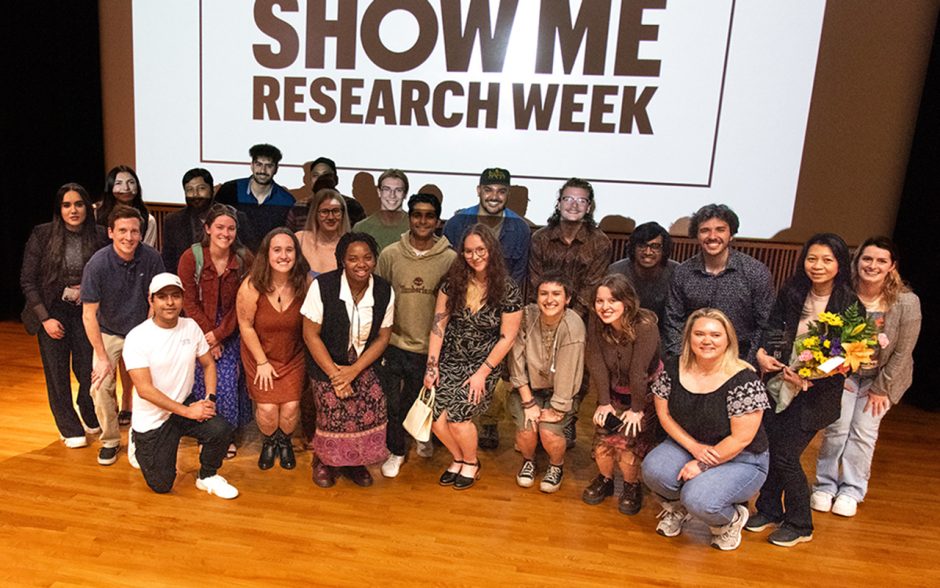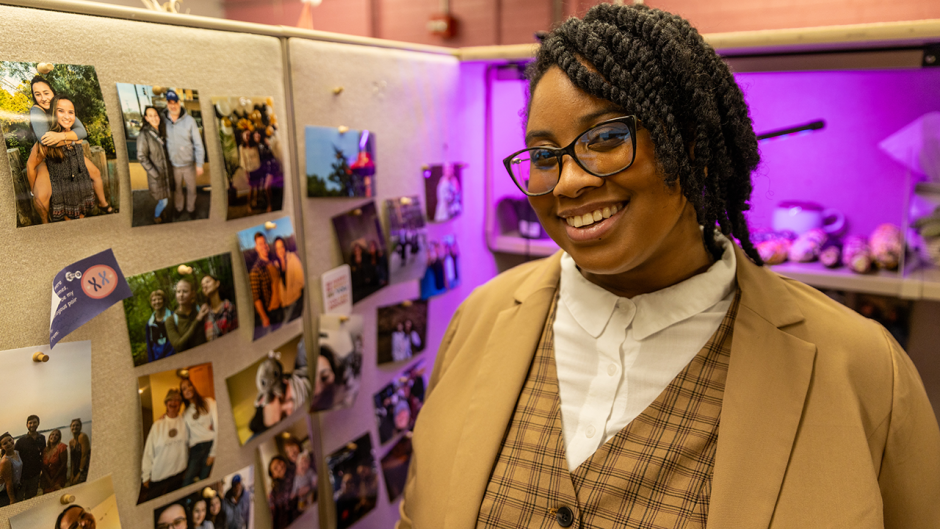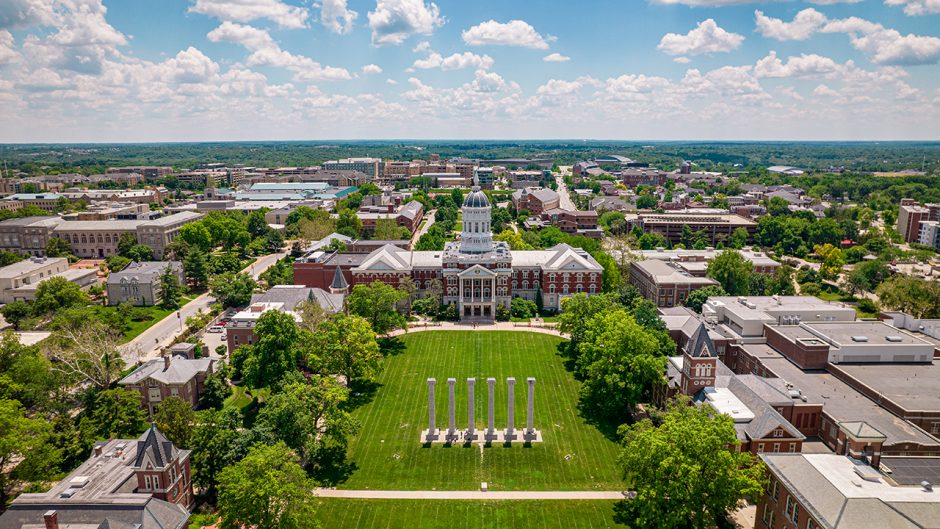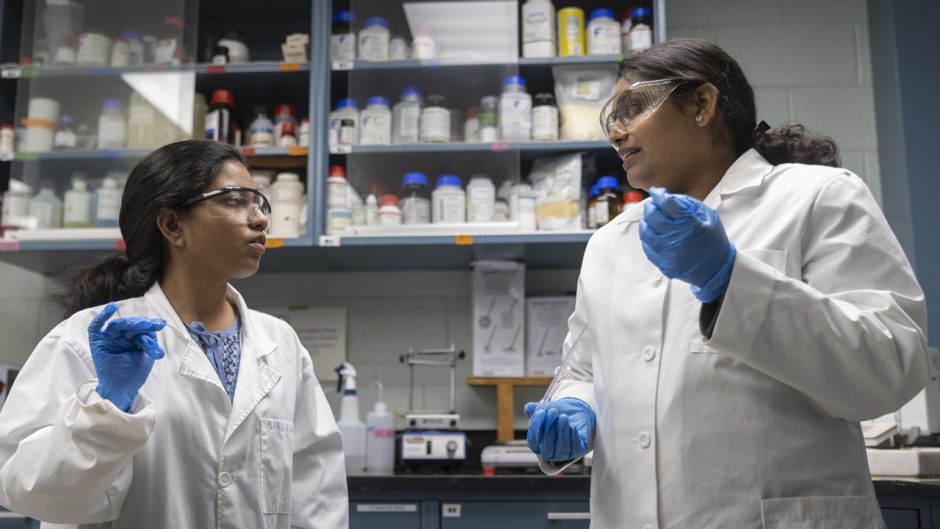July 9, 2020
Alexandra Housh has always dreamed of tackling scientific challenges in one of the Energy Department’s National Labs. Now, she will make that dream a reality with her fellowship from the Department of Energy’s Office of Science Graduate Student Research program.
This fall, Housh, a University of Missouri graduate student pursuing a doctorate in chemistry, will study with a scientist at the Pacific Northwest National Laboratory in Richland, Washington. She was one of the 62 graduate students from across the U.S chosen for this fellowship this year — and the only student chosen from Mizzou.
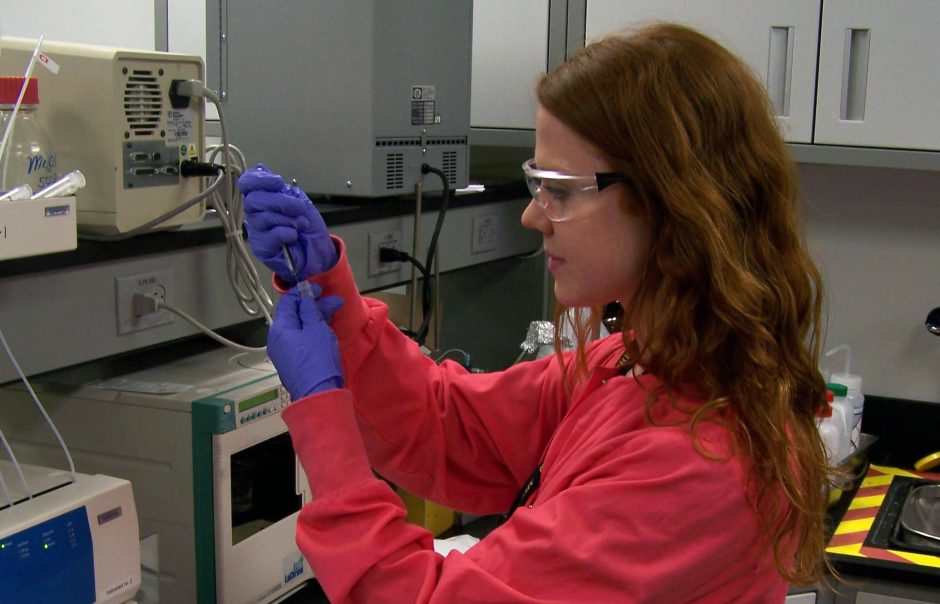
This fall, Housh will study with a scientist at the Pacific Northwest National Laboratory in Richland, Washington. She was one of the 62 graduate students from across the U.S chosen for this fellowship this year — and the only student chosen from Mizzou.
Growing new energy
For this fellowship, Housh is researching how to sustain future renewable bioenergy resources made from plants grown in suboptimal soils. Her research will aid in helping sustain plant growth under less than ideal conditions.
“The Department of Energy is interested in energy production and the different ways we can improve the process of generating future energy resources,” she said. “My research can be helpful in understanding how to grow bioenergy crops more efficiently.”
Housh will focus her effort on how a certain type of bacteria can help switchgrass grow more efficiently. The bacteria provides nitrogen to the switchgrass, and replaces the need for nitrogen fertilizers. Housh said nitrogen fertilizers are often expensive and can also be harmful to the environment.
“If we can figure out how to get plants to grow better naturally and without the need for fertilizers, then we might be able to get plants to produce better quality biofuels at larger quantities,” she said. “By understanding the interaction between the bacteria and the switchgrass, we might be able to select appropriate strains of bacteria that result in improved plant performance.”
Housh said switchgrass can live more than 10 years without needing to be replanted and can also grow in areas where other renewable biofuel resources, including corn and soybeans, have difficulties growing because of the poor soil conditions. According to the U.S. Department of Agriculture, the interest in renewable biofuel resources has grown in recent years.
“Biofuels are a great alternative to fossil fuels,” she said. “They have less carbon emissions in comparison to some fossil fuels, such as coal.”
Exploring radiochemistry
As an undergraduate student, Housh originally wanted to be a physician. She always enjoyed her science classes and majored in biology and chemistry. But while at the Department of Energy sponsored Nuclear Chemistry Summer School in San Jose, California, she learned of a new career path — radiochemistry.
There, Housh met Dave Robertson, director of the University of Missouri Research Reactor and professor of chemistry in the College of Arts and Science. At MURR, she could gain more experience in radiochemistry, using radioactive chemicals to study chemical reactions with the high powered reactor.
“I really wanted to come to Mizzou because we have the largest research reactor in the country and a lot of different opportunities for research,” she said.
Housh now works as a student researcher in the plant radiotracer lab of Richard Ferrieri, a research professor in the Department of Chemistry who works at MURR. The lab, a part of MU’s Interdisciplinary Plant Group, uses radiochemistry technology to learn more about how microorganisms, like bacteria, help plants grow. Housh said it was a perfect fit.
“Mizzou is also a well-known university in plant sciences, most notably with the research teams that make up the Interdisciplinary Plant Group,” she said. “The collaborations that I’ve been able to establish with my colleagues within this research community has furthered my interest in this field."
Housh said the work she’s already doing at MU is similar to what she’ll be doing at the Pacific Northwest National Laboratory, but with corn instead of switchgrass. Housh will use her radiochemistry experience to study the interactions between the bacteria and the switchgrass.
“I’ve been able to put plant sciences and radiochemistry together really nicely and I think that prepared me uniquely for this particular project, which is of interest to the Department of Energy," she said.
Now, Housh will continue to use what she’s learned to make further strides in science.
“These graduate student awards prepare young scientists for STEM careers critically important to the DOE mission and the advancement of American science and technology,” said U.S. Secretary of Energy Dan Brouillette. “We are proud of the accomplishments these outstanding awardees have already made and look forward to following their achievements in the years to come. They represent the future leadership and innovation that will allow American science and engineering to excel in the 21st century.”
The program gives graduate students in science, technology, engineering and math fields the opportunity to do thesis research at one of the 14 Department of Energy laboratories while working with DOE scientists.
The fellowship gives graduate students access to DOE resources to continue their research in areas that need more highly skilled scientists.

